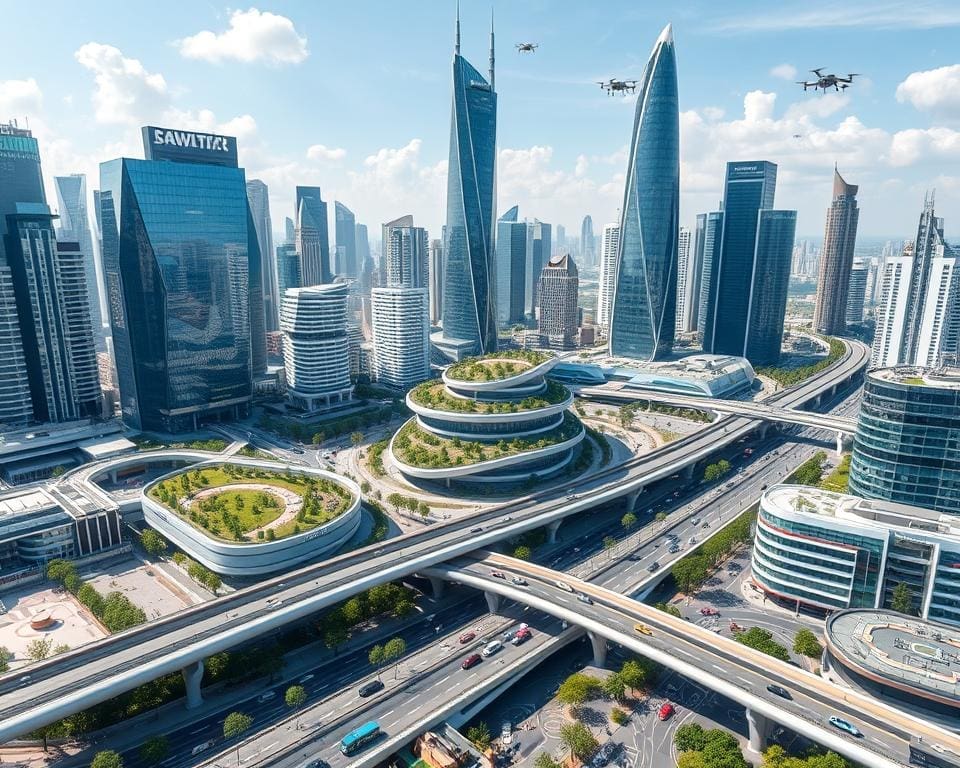The evolution of urban environments into Smart Cities marks a pivotal moment in our approach to city living. As populations surge and urbanisation accelerates, the Internet of Things (IoT) emerges as a fundamental technology driving this transformation. Understanding why Smart Cities depend on IoT technology is crucial; it plays a vital role in enhancing efficiency, sustainability, and the overall quality of life. By integrating IoT technology, cities can address pressing challenges such as traffic congestion and energy consumption, paving the way for innovative solutions that foster economic growth. With projections indicating that by 2050, 68% of the global population will live in urban areas, the need for smart solutions has never been more pressing.
The Rise of Smart Cities
The rapid pace of urbanisation has given rise to the concept of Smart Cities, where technology and innovative solutions interconnect to create more efficient urban environments. As cities expand and populations grow, the need for enhanced systems becomes apparent. Smart Cities employ digital technology to improve both performance and the overall quality of life for their residents.
Defining Smart Cities
A Smart City refers to a municipality that integrates information and communication technology (ICT) into its operations. This unique blend allows for real-time data collection and management, enabling a seamless interaction between citizens and their urban environment. In essence, Smart Cities leverage connected infrastructure to offer intelligent services that cater to the dynamic needs of their inhabitants.
The Role of Urban Innovation
Urban innovation stands at the forefront of the Smart City movement. The implementation of transformative technologies such as big data analytics, artificial intelligence, and sustainability initiatives fuel this evolution. These innovations facilitate ingenious solutions in areas like transport, waste management, and public safety. As cities embrace these advancements, they pave the way for a future where sustainable living becomes the norm.

Why Smart Cities Depend on IoT Technology
The landscape of urban development is undergoing a radical shift, largely propelled by the integration of IoT technology. At its core, IoT (Internet of Things) represents a network of devices connected to the internet, facilitating seamless communication and data exchange. This capacity enables real-time decision-making processes, which are essential for ensuring that cities operate efficiently and responsively. As we delve deeper into why Smart Cities depend on IoT technology, it becomes evident that understanding these systems is crucial for realising their potential.
Understanding IoT Technology
The foundation of IoT technology lies in its ability to connect and optimise various urban systems. By harnessing IoT solutions, cities can enhance not only their operational effectiveness but also improve the quality of life for their residents. For instance, smart sensors play a pivotal role in monitoring environmental conditions, while connected public transport systems can provide real-time updates to commuters. This level of responsiveness is a key component of sustainable urban planning, allowing cities to adapt swiftly to the changing needs of their populations.
Transforming Urban Infrastructure
The transformation of urban infrastructure, driven by IoT solutions, showcases a tangible path towards digital transformation. Take, for instance, smart grids that enable cities to monitor and manage energy consumption more effectively, ultimately leading to reduced emissions. Similarly, IoT-enabled traffic management systems can alleviate congestion, demonstrating a clear benefit to urban mobility. Reports indicate that cities that embrace IoT solutions can experience cost savings of up to 15% in operational expenses, reinforcing the economic advantages that these technologies introduce while fostering a greener, more sustainable urban environment.








